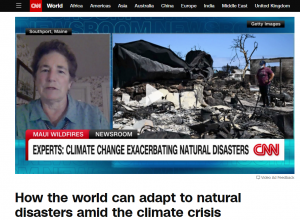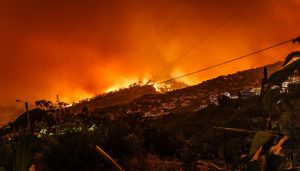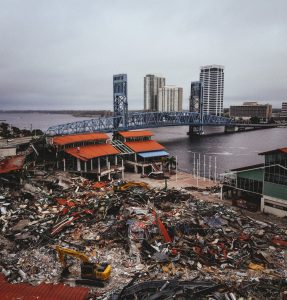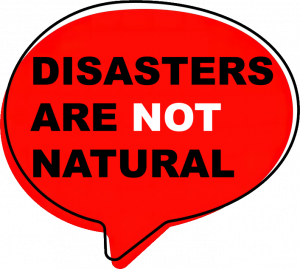Demystifying the “Semantic Issue” of Natural Disasters: The Naturalization of Tragedy

How the world can adapt to natural disasters amid the climate crisis, 14 de ago. de 2023. Disponível em: https://edition.cnn.com/videos/world/2023/08/14/exp-maui-wildfires-climate-adaptation-jacobs-holmes-intv-08141aseg1-cnni-world.cnn. Accessed on: October 25, 2023.
We inhabit a world where words wield power. The manner in which we choose to label and describe events exerts a significant impact on how we perceive and respond to them. A quintessential example of this “semantic issue” can be found in the term “natural disaster.”
At first glance, “natural disaster” appears to be a neutral and objective description. It refers to phenomena of nature – such as earthquakes, hurricanes, and floods – that cause damage or loss. However, upon closer inspection, we realize that the terminology itself can be misleading and potentially perilous.
By labeling these adverse events as “natural,” we run the risk of also naturalizing their devastating consequences. There is an underlying suggestion that, being “natural,” these events and their damages are inevitable, a fact of life to which we must simply acquiesce. This mindset may lead to widespread complacency, where the responsibility to prepare for such events or to mitigate their impacts is minimized.

Governments around the world, oftentimes, take shelter behind this terminology to justify a lack of preparation or action. After all, if a disaster is “natural,” then, theoretically, it is beyond human control, correct? Incorrect. While the event itself may be a product of nature, our response to it is undeniably a human choice.
It is vital to underscore the importance of socioeconomic and political aspects in determining the severity and impact of disasters. Social inequalities, limited access to education, and corruption, for instance, can augment the vulnerability of populations to disasters. In areas where corruption is rampant, we can observe mismanagement of resources, inadequate infrastructures, and the absence of essential preventative measures.
Why, then, are many governments failing to implement adequate disaster preparation measures or to build resilience? Perhaps because, as long as these events are perceived as “natural,” there will be less pressure to act. If society accepts the notion that deaths in “natural” disasters are, in some way, an acceptable or inevitable outcome, then the motivation to invest in prevention and mitigation wanes.

Civil society participation is crucial to ensure the effectiveness of public policies. By questioning and challenging inadequate terminologies, we can further emphasize the anthropogenic nature of disasters and the importance of addressing the underlying factors that contribute to them.
To say that a disaster is “natural” might be a half-truth. Many disasters we witness are, in part, products of negligence, mismanagement, and anthropogenic lack of planning. This human intervention, whether by action or omission, renders society more vulnerable to adverse events.
Thus, as we reflect upon the recurring disasters we observe year after year, it is imperative to recognize that they are not merely natural adverse events. They are the result of the interaction between the uncontrollable force of nature and anthropogenic omission. And while the former may be inevitable, the latter most certainly is not. Deaths and damages are not merely “natural” consequences; they are often the products of flawed human decisions.

Blanchard, Kevin. No Natural Disasters, 2021. Disponível em: https://www.nonaturaldisasters.com/. Accessed on: October 25, 2023.
Concluding that disasters are inevitable is not only a mistake but also a grave injustice to those affected by them. We must recognize and act upon our own responsibility in the disasters we face. Only in this way can we truly aspire to a safer and more resilient future for all.
